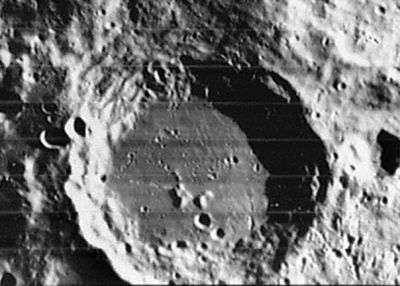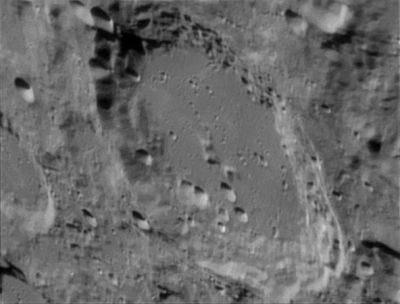Difference between revisions of "Blancanus"
| Line 6: | Line 6: | ||
|- | |- | ||
| | | | ||
| − | [http://www.lpod.org/coppermine/displayimage.php?pid=1724&fullsize=1 [[Image: | + | [http://www.lpod.org/coppermine/displayimage.php?pid=1724&fullsize=1 [[Image:Normal_Blancanus-IV-130-h3.jpg|external image normal_Blancanus-IV-130-h3.jpg]]]<br /> |
| | | | ||
| − | [http://www.lpod.org/coppermine/displayimage.php?pid=2851&fullsize=1 [[Image: | + | [http://www.lpod.org/coppermine/displayimage.php?pid=2851&fullsize=1 [[Image:Normal_blancanus_040807_03h44tu.jpg|external image normal_blancanus_040807_03h44tu.jpg]]]<br /> |
|} | |} | ||
Left: ''[http://lpod.org/coppermine/displayimage.php?pos=-1722 Lunar Orbiter IV 130-h3]'' Right: ''[http://lpod.org/coppermine/displayimage.php?pos=-2851 François Emond]''<br /> <div id="toc"> | Left: ''[http://lpod.org/coppermine/displayimage.php?pos=-1722 Lunar Orbiter IV 130-h3]'' Right: ''[http://lpod.org/coppermine/displayimage.php?pos=-2851 François Emond]''<br /> <div id="toc"> | ||
| Line 22: | Line 22: | ||
<br /> | <br /> | ||
===Elger=== | ===Elger=== | ||
| − | ''([[IAU% | + | ''([[IAU%20directions|IAU Directions]])'' BLANCANUS.--A formation, 50 miles in diameter, on the S.W. side of [[Clavius|Clavius]], whose surpassing beauties tend to render the less remarkable features of this magnificent ring-plain and those of its neighbour [[Scheiner|Scheiner]] less attractive than they otherwise would be. The crest of its finely terraced wall, which at one peak on the W. rises to 18,000 feet, is at least 12,000 feet above the interior. Krieger saw twenty craters on the floor (1894, Sept. 21, 13h.), most of them situated on the S. quarter.<br /> <br /> |
===Wikipedia=== | ===Wikipedia=== | ||
[http://en.wikipedia.org/wiki/Blancanus_(crater) Blancanus]<br /> <br /> | [http://en.wikipedia.org/wiki/Blancanus_(crater) Blancanus]<br /> <br /> | ||
| Line 28: | Line 28: | ||
* IAU page: [http://planetarynames.wr.usgs.gov/Feature/767 Blancanus] | * IAU page: [http://planetarynames.wr.usgs.gov/Feature/767 Blancanus] | ||
| − | * Depth data from [[Kurt%20Fisher% | + | * Depth data from [[Kurt%20Fisher%20Crater%20Depths|Kurt Fisher database]] |
** Westfall, 2000: 5.97 km | ** Westfall, 2000: 5.97 km | ||
** Viscardy, 1985: 3.9 km | ** Viscardy, 1985: 3.9 km | ||
Latest revision as of 01:42, 16 April 2018
Contents
Blancanus
|
Lat: 63.68°S, Long: 21.76°W, Diam: 105.82 km, Depth: 5.97 km, Rükl: 72 | |
Images
LPOD Photo Gallery Lunar Orbiter Images
- Item N°26 in C.A.Wood's list of Concentric Craters (1978) is the one at the western part of Blancanus C's rim. Blancanus C itself was captured on Lunar Orbiter 4's photograph LOIV-130-h2, very near the frame's upper left corner. I wonder if there ever was a photograph LOIV-135-h2 and/or LOIV-135-h3 (west of LOIV-130-h2 and slightly overlapping its "left" margin), because I think it would have been possible to see a little bit more of the floor of this concentric crater.
- Research: Danny Caes
Maps
(LAC zone 125C3) LAC map Geologic map
Description
Elger
(IAU Directions) BLANCANUS.--A formation, 50 miles in diameter, on the S.W. side of Clavius, whose surpassing beauties tend to render the less remarkable features of this magnificent ring-plain and those of its neighbour Scheiner less attractive than they otherwise would be. The crest of its finely terraced wall, which at one peak on the W. rises to 18,000 feet, is at least 12,000 feet above the interior. Krieger saw twenty craters on the floor (1894, Sept. 21, 13h.), most of them situated on the S. quarter.
Wikipedia
Additional Information
- IAU page: Blancanus
- Depth data from Kurt Fisher database
- Westfall, 2000: 5.97 km
- Viscardy, 1985: 3.9 km
- Cherrington, 1969: 3.81 km
- Blancanus C is possible concentric crater
Nomenclature
- Named for Giuseppe Biancani (in Latin, Josephus Blancanus) (1566-1624), an Italian Jesuit astronomer, mathematician, and selenographer. In his book Sphaera mundi, Biancani presented a summary of the discoveries made with the telescope by Tycho Brahe, Johannes Kepler, Galileo, Copernicus, and others. The book contains one of the first crude lunar maps.
- This name has continued unchanged since its original usage for this feature on Riccioli's map (Whitaker, p. 218).
LPOD Articles
Bibliography
Named Featues -- Prev: Mont Blanc -- Next: Blanchard

